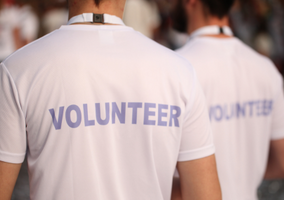Volunteering rates in England are still failing to reach pre-pandemic levels, according to government research published today.
The latest Community Life Survey says that 16% of adults reported regularly (every month) taking part in formal volunteering in 2023-34, in line with rates in 2021-2022 and slightly below those the year before.
This marks a sustained decline in regular formal volunteering rates since the last pre-pandemic year (2019-20), when the rate was 23%.
Some 28% of adults took part in formal volunteering less regularly (at least once in the last year) in 2023-24, which was in line with 2021-22 rates but also below pre-pandemic levels, when the same figure was 37% in 2019-20.
Conducted by the Department for Culture, Media and Sport, the survey is based on a nationally representative sample of adults in England and defines formal volunteering as referring to “those who have given unpaid help to groups or clubs”.
Meanwhile, 24% of adults in England had participated in informal volunteering, “giving unpaid help to individuals who are not a relative”, regularly in the last 12 months.
This compared to 26% last year, while 44% of adults in England had taken part in informal volunteering at least once in 2023-24, a decline from 46% in 2021/22 and from 54% in 2020/21.
Older people more likely to volunteer
According to the survey, adults aged 65 to 74 were the most likely age group to formally volunteer at least once a month in the last year, at 23%, while adults aged 25 to 34 were least likely, at 11%.
This comes after the Youth Voice Census reported in September that the number of young people volunteering had declined by 7% this year.
In terms of geographical variation, adults from rural areas were more likely to have formally volunteered at least once a month (21%) compared with adults from urban areas (15%).
Adults whose gender identity was different from their sex registered at birth were more likely to participate in formal volunteering at least once a month (20%) compared with adults whose gender identity was the same as their sex registered at birth (16%).
Adults not volunteering due to work commitments
Adults who had not volunteered at least once a month in the last 12 months were asked about their reasons for not volunteering more frequently, or at all, in the past year.
The most common barriers to participating in formal volunteering were in line with findings in 2020-21, including work commitments (51%); doing other things in their spare time (33%) and having to look after children (22%).
Meanwhile, adults who reported doing any formal volunteering in the last 12 months were asked about their reasons for participating in formal volunteering.
The most common reasons for formal volunteering were also similar findings in 2021-22. The reasons included wanting to improve things or help people (47%); having spare time to do it (32%) and because the cause was really important to them (30%).
Related articles












